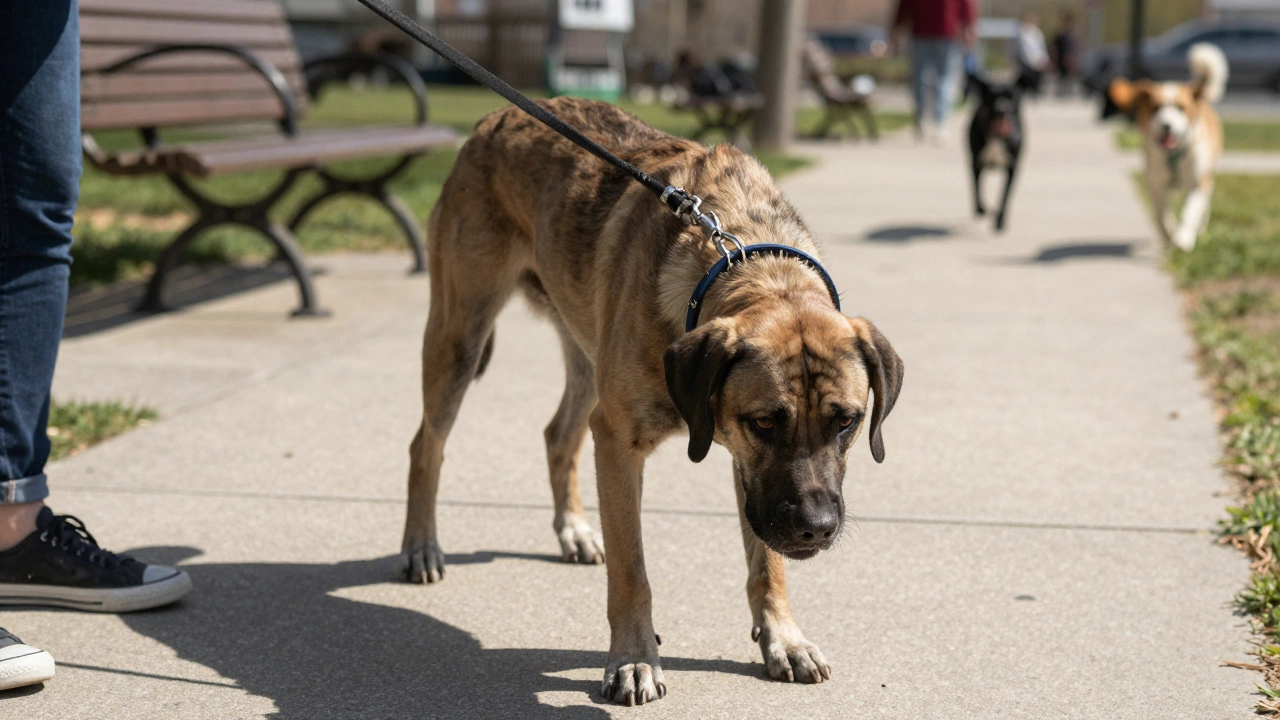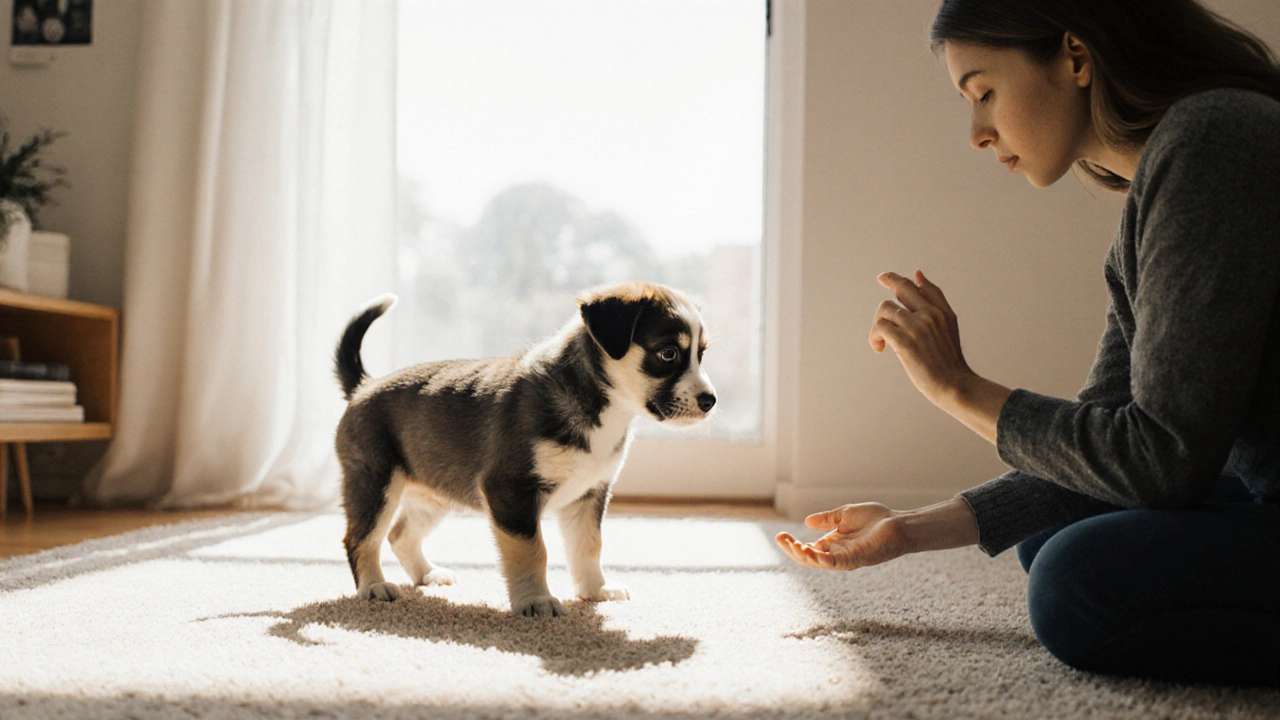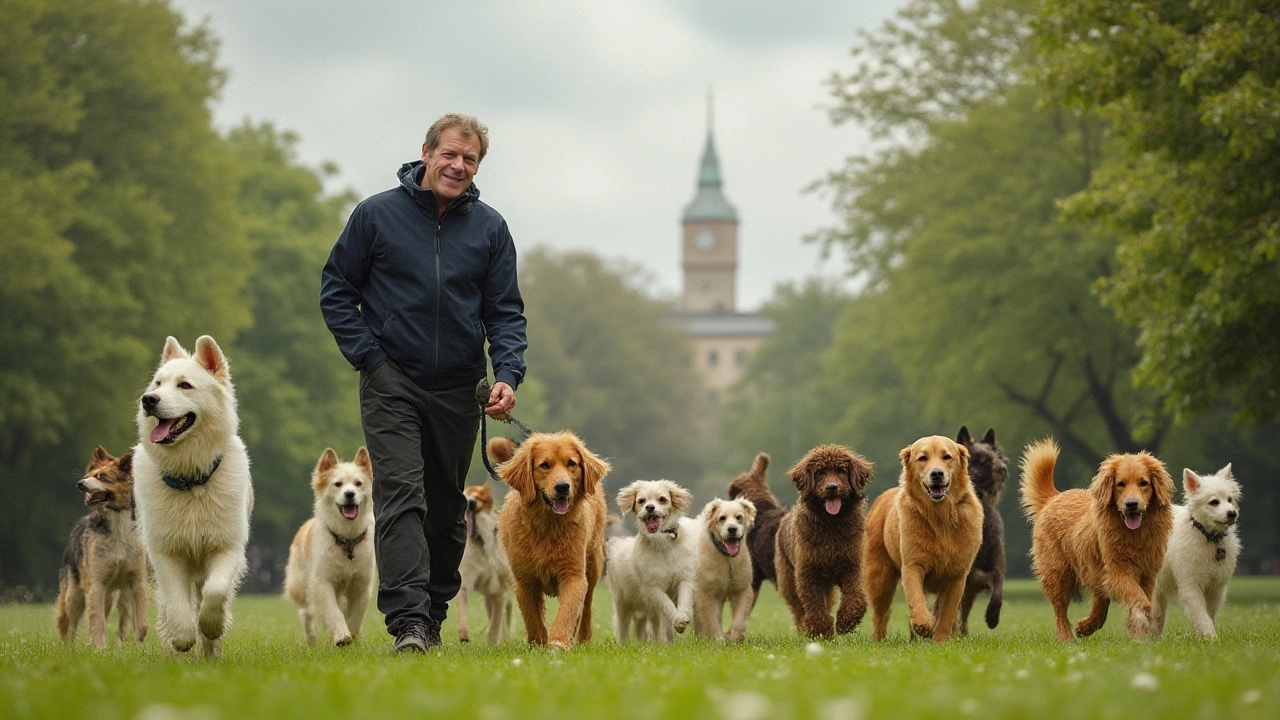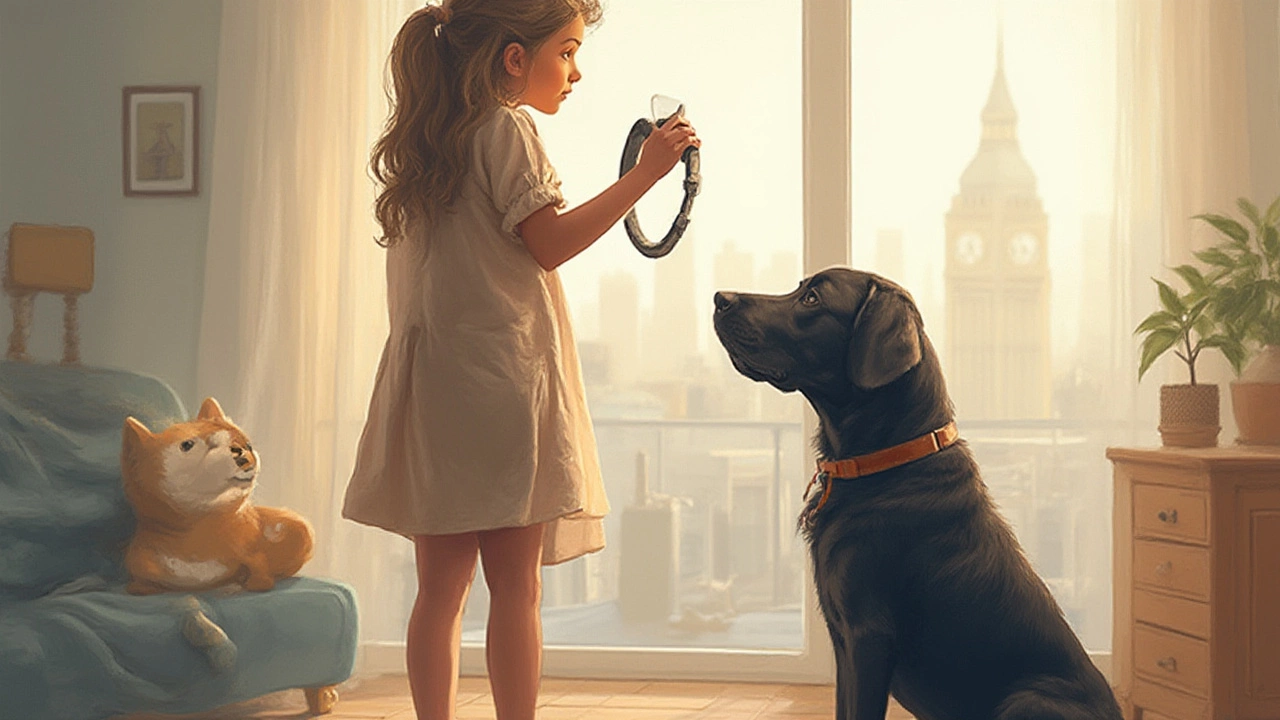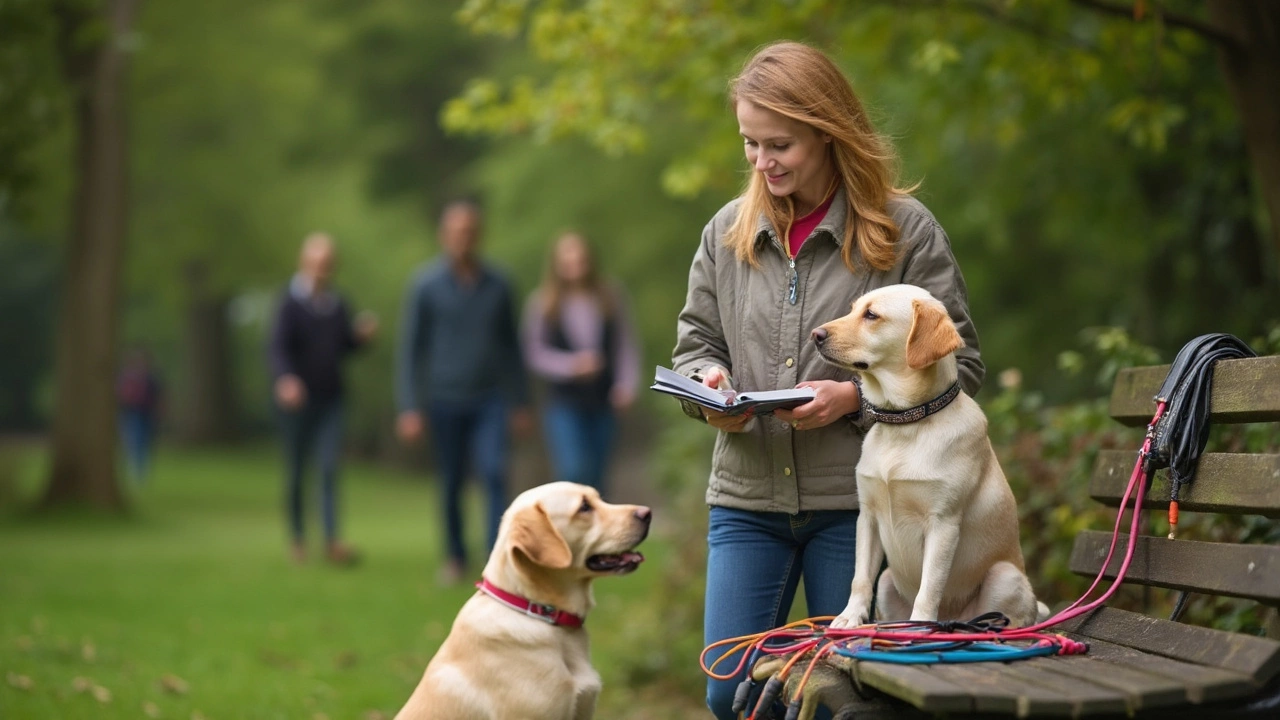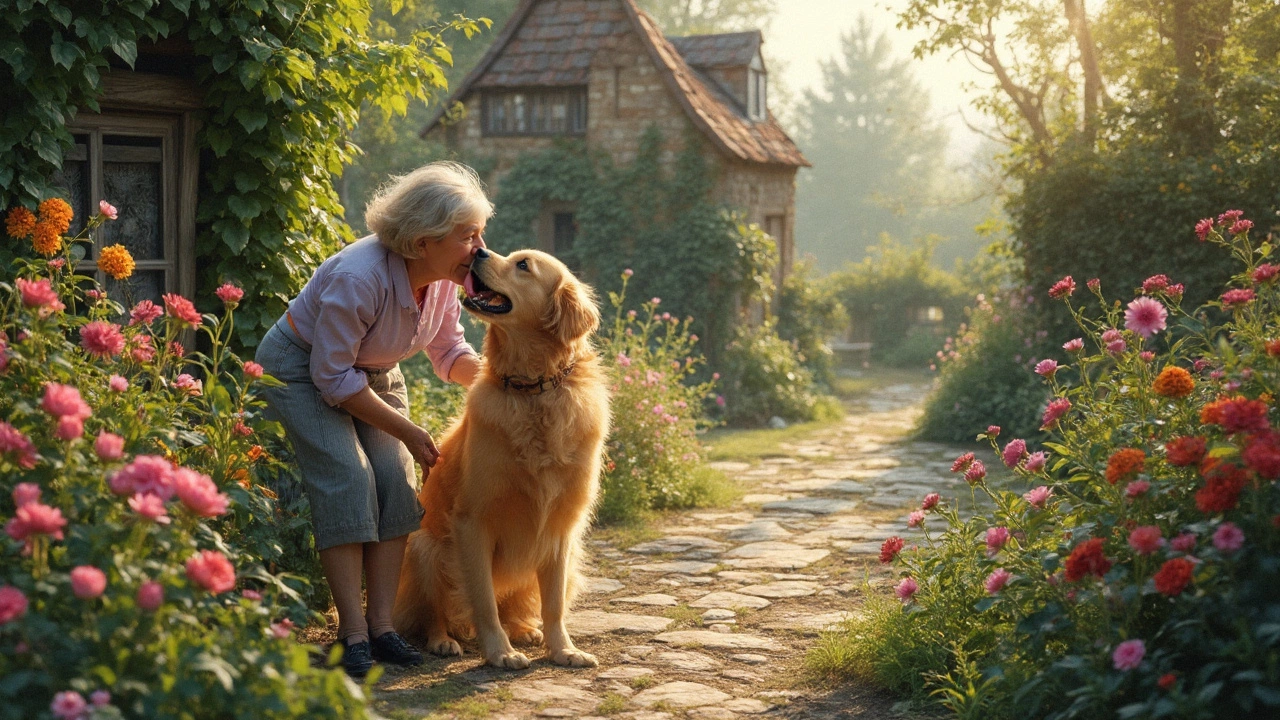Dog Behavior: Simple Ways to Read and Shape Your Pup
Ever wonder why your dog barks at the mail carrier or suddenly dives under the sofa? Understanding the why behind those actions is the first step to a happier home. Below are easy, everyday ideas you can use right now to make sense of common dog behavior and guide it in a better direction.
Read the Signals: What Your Dog Is Trying to Tell You
Dogs communicate mostly with their bodies. A wagging tail doesn’t always mean "I'm happy" – the speed, height, and overall posture matter. A low, slow wag often signals uncertainty, while a high, fast wag usually shows excitement. Look at the ears, too: ears forward mean interest, ears back can indicate fear or submission.
Another big clue is eye contact. A soft gaze shows trust; a hard stare can be a challenge. When your dog pins its ears back, nose to the ground, and cowers, it's likely scared. Recognising these cues helps you react before the situation escalates.
Basic Training Tools That Actually Work
Once you know what the signals mean, use simple training tools to guide behavior. Start with a clear cue word like "leave it" or "settle". Pair the cue with a treat or gentle praise the moment your dog stops the unwanted action. Consistency is key – use the same word, tone, and reward each time.
Leash handling also influences behaviour. A loose leash tells your dog it’s safe to explore, while a tight leash can cause tension and reactivity. Keep the leash slack, and if you notice your dog pulling, stop walking until the leash loosens.Playtime is another training opportunity. If your dog jumps on people, teach an alternative like "sit" before greeting. Reward the sit with a quick pat and a treat, then allow the greeting. Over time, the dog learns the polite option works better than jumping.
Problem behaviours like excessive barking or chewing often stem from boredom. Provide mental stimulation with puzzle toys, short training sessions, or a quick game of fetch. Even a 10‑minute scent game can tire out a restless pup and curb unwanted habits.
Remember, patience beats punishment. Yelling or harsh corrections may silence a behavior for a minute but usually creates fear, which drops into other problems. Keep your tone calm, stay consistent, and celebrate small wins.
Got a specific issue? Write down the trigger, the dog’s reaction, and what you did. Over a week, you’ll see patterns that point to the root cause, making it easier to fix.
With these easy steps – reading body language, using clear cues, and giving the right amount of mental work – you’ll notice a calmer, more confident dog in no time. Keep it simple, stay patient, and enjoy the process of getting to know your four‑legged mate better every day.
- Morgan Ainsworth
- 0 Comments
Does My Dog Know I'm Leaving? What Science Says About Dogs and Separation
Dogs don't just notice when you leave-they feel it. Learn how your dog understands your absence, what signs of separation anxiety look like, and how to help them stay calm during holidays.
View More- Morgan Ainsworth
- 0 Comments
Why Does My Dog Follow Me to the Toilet? The Real Reason Behind the Behavior
Dogs follow you to the toilet because of attachment, routine, or anxiety-not just curiosity. Learn the real reasons and how dog health supplements can help calm separation anxiety naturally.
View More- Morgan Ainsworth
- 0 Comments
Why Do People Hate Prong Collars So Much?
Prong collars cause pain, fear, and long-term harm to dogs-even when used "correctly." Learn why experts, veterinarians, and dog owners are rejecting them in favor of humane, science-backed training methods.
View More- Morgan Ainsworth
- 0 Comments
Interrupting a puppy’s indoor peeing: what’s the right move?
Learn when and how to safely interrupt a puppy's indoor peeing, with step‑by‑step cues, timing tips, and cleaning advice for fast house training.
View More- Morgan Ainsworth
- 0 Comments
Does Cesar Millan Use Training Collars? Unpacking the Famous Dog Whisperer’s Methods
Curious if Cesar Millan uses training collars? Discover how the Dog Whisperer’s unique methods work, what types of collars he’s used, and whether these techniques are effective.
View More- Morgan Ainsworth
- 0 Comments
Are Training Collars Good for Dogs? Pros, Cons, and Safe Alternatives
Unpack the controversy around dog training collars. Learn the pros, cons, and science-backed tips for making the best choice for your dog's training and happiness.
View More- Morgan Ainsworth
- 0 Comments
Dog Licks Explained: What Does It Really Mean When Your Dog Licks You?
Ever wondered why your dog seems obsessed with licking you? This article breaks down the reasons behind this quirky behavior, from showing affection to seeking attention. We’ll get into what’s normal, when licking might signal a problem, and how your dog’s bed plays a role in their licking habits. You’ll find practical tips for managing unwanted licks and learn a few odd facts you probably didn’t know. If you share your home with a four-legged licker, this is for you.
View More- Morgan Ainsworth
- 0 Comments
What Does My Dog Think When I Kiss Him? Decoding Dog Affection on Vacation
Ever wondered what goes through your dog’s mind when you plant a kiss right on his furry head? This article unpacks how dogs process human affection, especially during travel or on holidays. Get straightforward, science-backed answers and discover ways to make your pup feel loved during your adventures together. You’ll also pick up practical tips for showing affection in ways dogs truly understand. By the end, you’ll see your road trips and canine cuddles in a whole new light.
View More- Morgan Ainsworth
- 0 Comments
Cesar Millan on Prong Collars: What You Need to Know
Curious about Cesar Millan’s take on prong collars? This article breaks down his thoughts, how he actually uses them, and what you should keep in mind if you’re considering one. Get practical advice and real-world tips to help you decide whether a prong collar fits your dog and training style. Learn when they can work, where things can go wrong, and what alternatives are out there. Know the facts before making a choice for your pup.
View More- Morgan Ainsworth
- 0 Comments
Why Do Dogs Lick You? Exploring the Reasons and Benefits
Dogs are known for their quirky behaviors, with licking being one of the most common. While it might just seem like a form of affection, licking can actually reveal quite a bit about a dog's physical and emotional health. This article delves into the reasons behind this behavior, including instinctual needs and possible deficiencies. It also discusses how understanding these actions can improve the health and happiness of your pup.
View More- Morgan Ainsworth
- 0 Comments
What Age Should a Dog Be Trained? Tips & Facts
Training a dog can seem like a daunting task, but knowing the right age to start makes a huge difference. Puppies can begin learning as early as eight weeks, as their brains are growing and receptive to new experiences. Older dogs can also be trained, but patience and consistency are key. From basic commands to advanced tricks, understanding your dog's developmental stages will help you tailor a training approach that works best for any age. This guide offers practical tips and intriguing facts about why timing matters when training your furry friend.
View More- Morgan Ainsworth
- 0 Comments
Understanding Belly Rub Behavior in Dogs: What It Really Means
Dogs have unique ways of expressing trust and comfort, and allowing a belly rub is one such behavior. Belly rubs can be more than just a request for affection; they can indicate a dog's mood, comfort level, and even health status. Understanding the significance of a dog letting you rub its belly can aid in strengthening your pet-parent bond. Additionally, it can offer insights into how supplements and a well-rounded diet might play a role in this behavior. This article explores the deeper meanings behind belly rub acceptance and its implications on canine well-being.
View More


